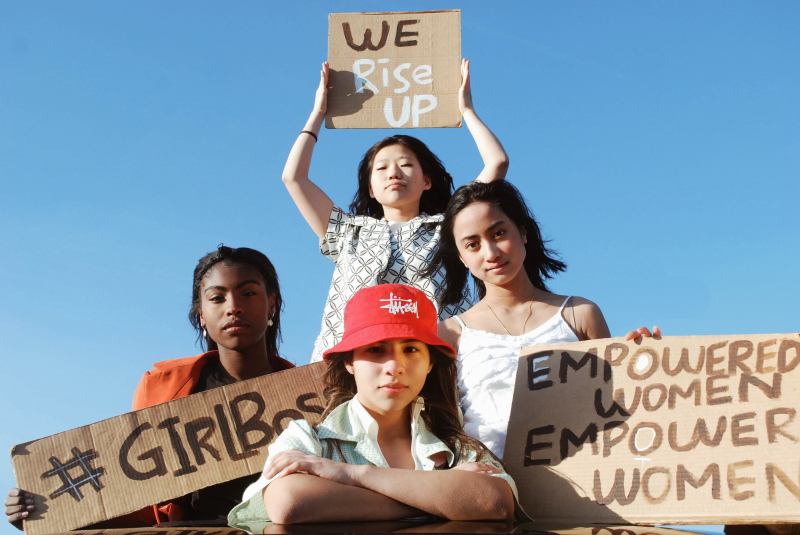Why it matters
In a nutshell, there is still pretty much a glass ceiling when it comes to female representation in cinema – not just for actresses, but, for instance, directors and producers, too – those skilled behind-the-scenes professionals who are just as, if not more responsible for what we see on the screen. Female directors also allegedly have a harder time securing funding. Beyond that, they are often told to edit the story to make it more relevant or “mainstream” when pitching their ideas, as was illustrated brilliantly by Greta Gerwig in her interpretation of Little Women (2019).
On the other hand, there is also the so-called male gaze, a concept made popular by film critic Laura Mulvey. It is used to describe the way women are usually presented on-screen: not only how they’re written but also the way we see them through the objectifying eyes of the camera. And no, we don’t think that the answer is in developing a female gaze, as in a polar opposite objectification of men – rather, the solution is in encouraging a diversity of perspectives on what it is to be human in this world.
Moreover, women are notoriously underrepresented at the Oscars, as well as other prominent awards – not only as winners, but also as nominees, which has led to much public disdain (as well as some poignant comments at the ceremonies themselves). Needless to say, movie awards are almost never non-problematic, but this particular issue strikes a chord, making it hard to miss.
Thus, today we will attempt to look at the industry through another lens, gladly introducing some of the recent yet already iconic films made by women.
Nomadland (2020)
Definitely a sensation of this year’s Oscars, this is a film that was written, directed, and produced by Chloé Zhao, an independent filmmaker. It stars Francis McDormand as a woman who departs from her hometown to roam America in a van and leave the burdens of society behind. Devoid of traditional story-building techniques, the film manages to create an all-encompassing impression based on seemingly fleeting moments. If you are not one to succumb to watching something that’s been discussed all over the place – put this habit aside this time around, because this film deserves to be seen.
Toni Erdmann (2016)
This film, written and produced by the German filmmaker Maren Ade, is a comedy-drama about a woman and her absentee father, who feels he no longer fits in her world and devises a masquerade of sorts to find a way to get through to her. Apart from that, sagacious viewers are sure to see elements of political satire and a definitively non-glamorous perspective on this complicated world of ours.
Selma (2015)
Being on every essential made-by-women list, this movie is directed by the prominent American director Ava DuVernay and is a historical drama about the Selma to Montgomery marches, undertaken by Black citizens wishing to exercise their right to vote. Like any historical drama, this is not an easy piece to watch, but seeing as our main aim is broadening our perspective, not necessarily by the easiest of means possible, it serves this purpose incredibly.
Monster (2003)
Another historical drama on our list, this is a film directed by Patty Jenkins (also behind the recent Wonder Woman flick) and starring Charlize Theron. The plot centers around Aileen Wuornos, a real-life serial killer who murdered several of her clients in the early 1990s before being captured and sentenced to death. An uncharacteristic depiction of a certainly dangerous woman who is not an object but she sees herself as a hero, this is a bloody and mentally unstable story.
Little Women (2018)
Having already mentioned this film above, we just can’t avoid mentioning Greta Gerwig on this list in full – and we’ve already recommended that you watch Lady Bird (2017), her directing debut, before. Probably the most comforting movie out of the five on our list, the film is a pattern of scenes and moments from different times in the lives of four sisters – allowing us to see them flamboyant in their happiness, silent with grief, and confounded by the abundance of emotions that life tends to bring us. Gerwig also let part of her own experiences as a female director inspire some of the scenes where Jo March, aspiring to be a writer, has to see a publisher about her book. You will laugh and cry – both with joy and sadness – and will definitely have a few revelations along the way.
If you want more cinema inspiration, check out our Movie Fridays series for a variety of recommendations for every taste and occasion.




